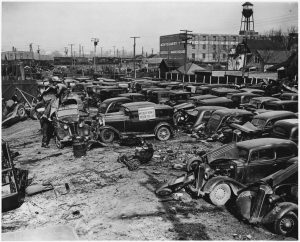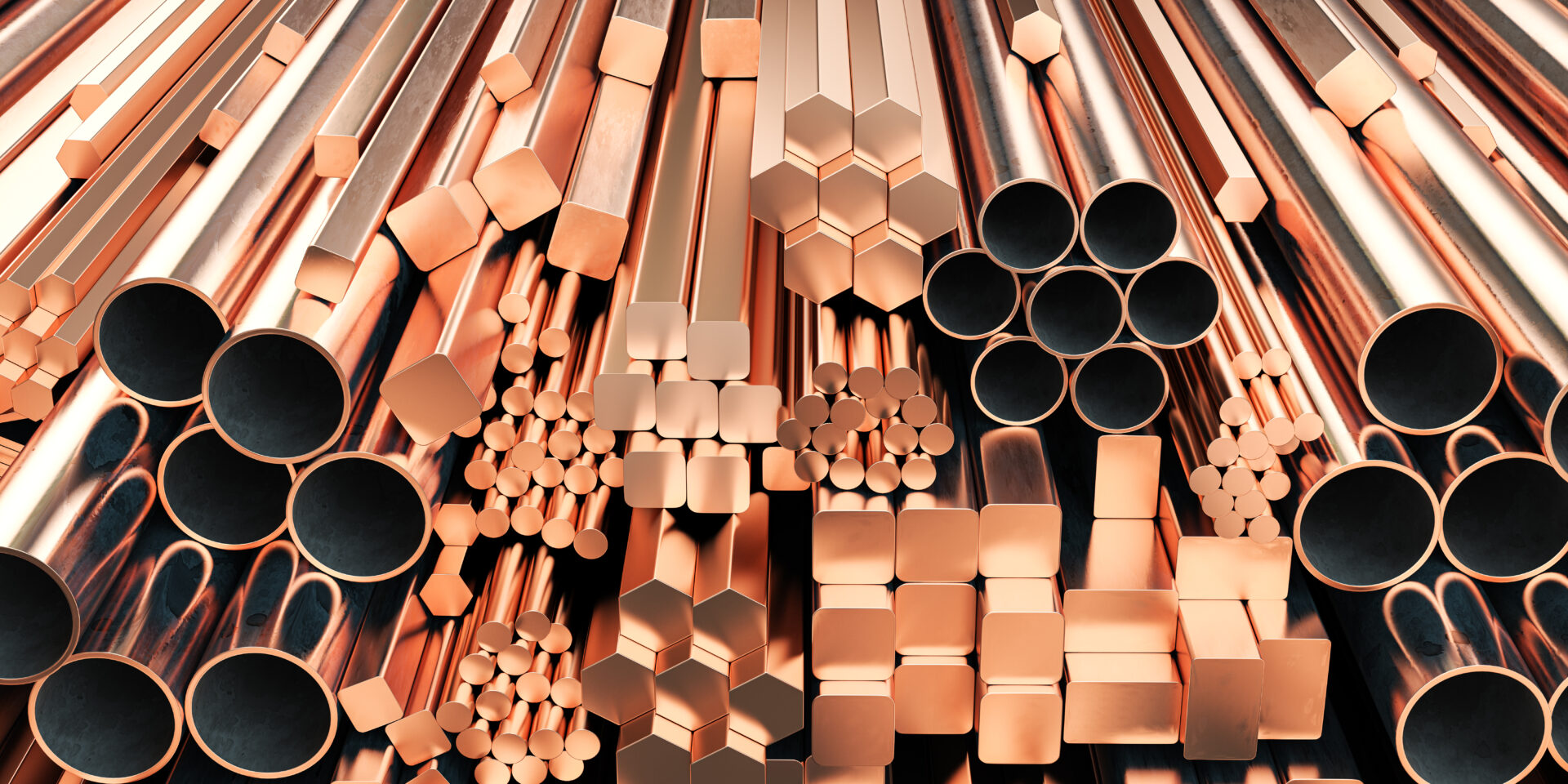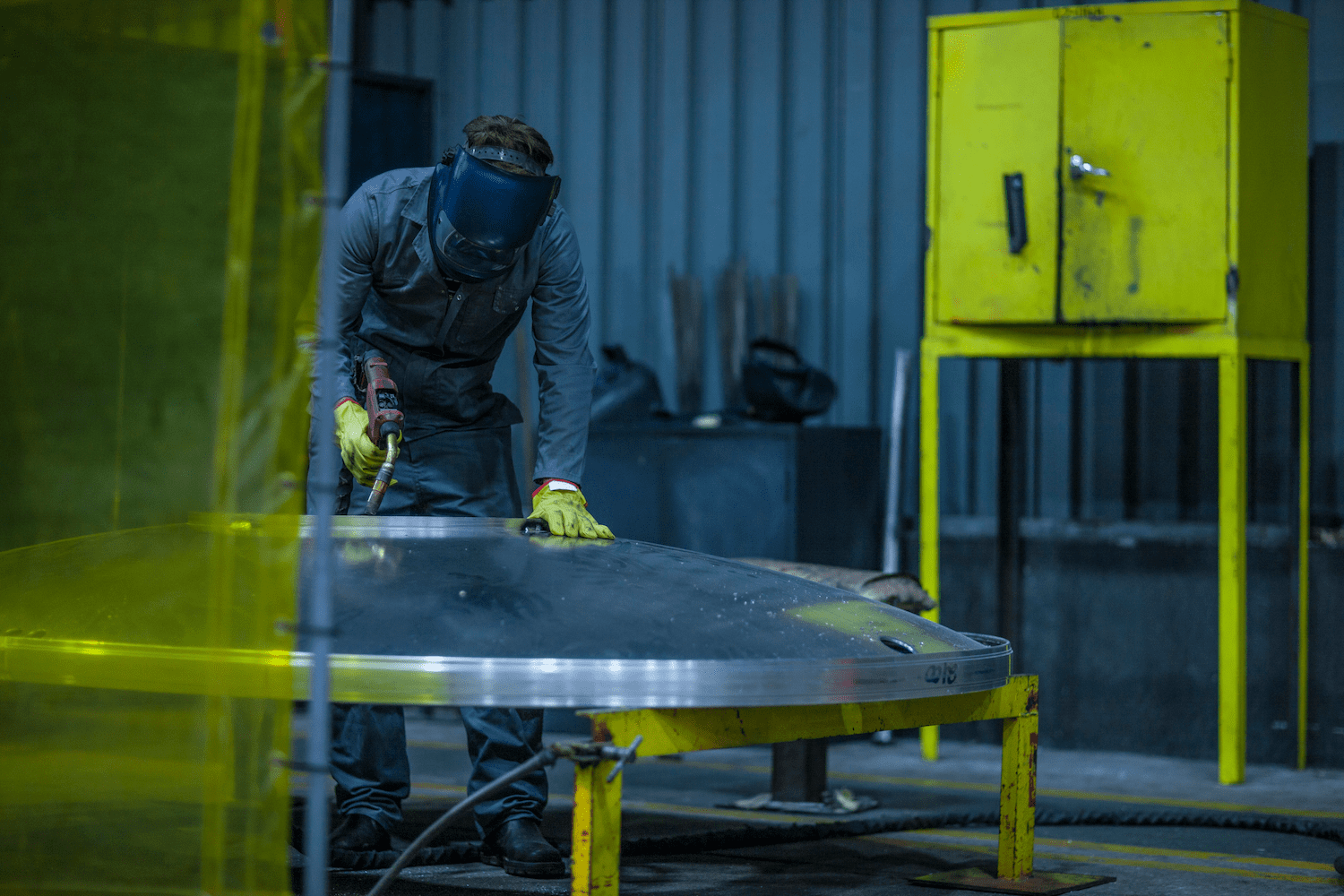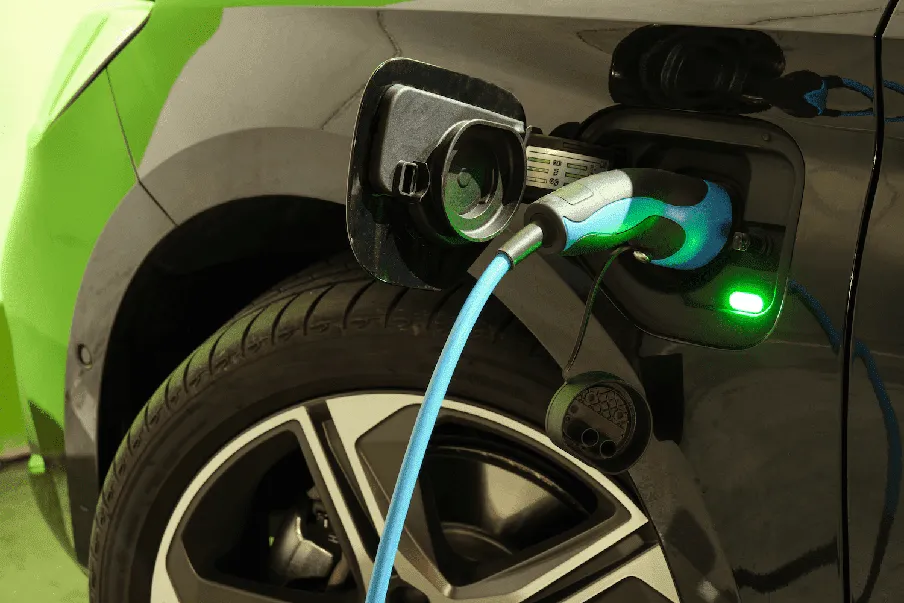
It’s been said that for more than a century in Michigan, the auto industry has been the dominant economic engine fueling so much of the state. And for decades now, the same has also been true about the Michigan scrap metal recycling industry.
At the turn of the 20th century, Michigan’s economy experienced the early signs of the major transformation that would take place with the development of the automotive industry.
A key factor was the introduction in 1908 of the moving assembly line in Highland Park.
The mass production of automobiles not only transformed Michigan’s economic foundation but also changed the lives of millions of Americans and the entire concept of public transportation.
Automobile production would soon become the leading industry of Detroit and Michigan, and by 1920, Detroit had boomed to become the fourth-largest city in the U.S.
At the same time, the dominant auto industry helped advance the formation of another industry that continues to thrive today, one that’s created more than 500,000 jobs across the nation: the scrap metal recycling industry.
Just as auto assembly lines produce a certain amount of scrap metal that doesn’t get used and can be discarded, scrap recyclers have demonstrated that there’s still plenty of value and use for it. And that’s true not just for automakers, but for any other manufacturers who rely on metals to create products.
And since industrial scrap metal recycling helps manufacturers hold down costs, demand for recycled metals has been on the rise for years. In fact, the global scrap metal recycling market is projected to grow by 997.9 million metric tons through 2021.
And scrap metal recyclers have also been recognized as one of the oldest environmentally-friendly fields, an industry that helps protect our land, air and water by keeping scrap out of landfills.
The Michigan scrap metal recycling industry is as much a part of Michigan’s economic legacy as the auto industry has been.
How Did the Auto Industry Become Dominant in Michigan?

Michigan has been a hub of activity for the Automotive Industry since the early 1900s, and it was the assembly lines that enabled workers to stay in place while putting parts on a vehicle as it moved past them. That increased the rate by which vehicles could be produced.
By World War 2, the ability of Michigan’s Auto Industry to effectively handle mass production was used toward the war effort, as workers delivered Jeeps, tanks, planes and guns by the thousands.
In that decade, the Auto Industry truly proved how flexible it could be.
It wasn’t just in Detroit. The city of Flint also developed strong roots in the auto industry, and Flint became an auto boom town by the start of the 20th century. The city’s first auto plant opened in 1908 as a Buick plant, followed in 1913 by a Chevrolet plant.
It’s the Detroit region, though, that remains the birthplace of the automotive industry, and even today, the Motor City produces more cars and trucks than any other state in the nation.
In 2017, more than 2 million cars and trucks rolled off 11 Michigan assembly lines. In fact, if you include auto parts suppliers, more than 1,600 automotive-related manufacturing establishments are located in Michigan today.
And there’s another industry that has grown out of the field of auto production, and that’s scrap recycling.
The basic metal components of the first cars came from cast iron and iron alloys known as steel, while lighter and stronger metals like aluminum and magnesium have also been used quite a bit.
Steel is a crucial part of the manufacturing industry, and when parts that don’t get used become obsolete and are discarded as scrap metal, recycling firms have shown over the years that they can be recycled and reused for a new purpose.
How Did the Recycling Industry Grow Out of the Auto Industry?

Michigan has long been recognized as a recycling pioneer. In 1978, Michigan implemented a deposit law for bottles and cans – the first large industrialized state to do so.
That original 10-cent deposit was launched for a specific purpose: to keep containers from going to landfills or littering roads and streets. Today, Michigan’s redemption rate on eligible containers is around 90 percent.
And the state continues to innovate when it comes to recycling. Emmet County, just south of the Mackinac Straits, recovers 40 percent of its waste through a self-funded recycling program that also extends into neighboring counties like Cheboygan, Otsego and Presque Isle.
That’s higher than nation’s estimated 35 percent recycling rate.
It’s considered an exceptional program for a small rural area. The Emmet County Department of Public Works estimates that up to 80 percent of area residents use the program, and the county has gotten national recognition for its recycling efforts.
In Michigan, though, scrap recycling goes back much farther than the 1970s. Ever since Detroit took on the nickname “Motor City,” a major spin-off field has been the scrap metal industry. They became more common in the 1950s, when they were known simply as scrap yards.
As a rising amount of scrap was being generated at the state’s manufacturing and production plants, recycling firms began to proliferate as it became clear that scrap still had value, including when automobiles had outlived their usefulness.
And scrap isn’t just used to help make new cars. Those parts have also been successfully recycled into everything from appliances to building materials, home furnishings, and plenty of other products.
Auto manufacturers, the steel industry, and the scrap metal recycling industry have all helped to create thousands of jobs and establish an economic engine for so many communities.
Recycled steel plays a major role in supporting sustainable and environmentally friendly steel-making practices worldwide.
Today, the U.S. makes most of its steel and aluminum by recycling scrap metal from manufacturers.
Michigan scrap metal recycling Today
The history of the Michigan scrap metal recycling industry is very much connected with the dominant auto manufacturing sector.
Not only have these recycling firms been able to provide recycled metals for use by manufacturers in making new products, but they’ve played a major environmental role by keeping so much of that scrap out of landfills. Scrap metal contains toxins like mercury and lead which can seep out and contaminate the soil and water.
In the meantime, we do know there is a constant need for scrap metal that can be recycled, which is why it’s important to bring all scrap metals to a recycler like GLE Scrap Metal, which is a full-service, all-in-one recycling company with operations throughout the U.S.
GLE recycles millions and millions of pounds of scrap metal each year and employs an experienced logistics team that handles its expansive fleet of trucks as well as equipment for jobs of any size, at any facility.
To learn more, call GLE Scrap Metal at 855-SCRAP-88.



